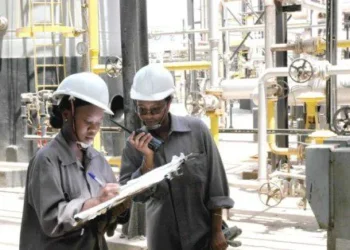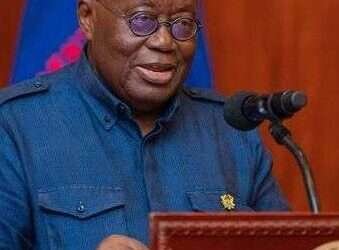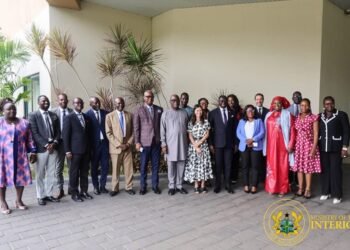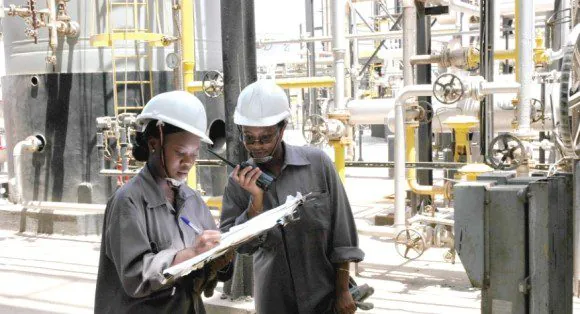The Director of Communications of the New Patriotic Party (NPP), Richard Ahiagbah, has launched a sharp critique of President John Dramani Mahama, accusing him of orchestrating a strategic reshaping of Ghana’s judiciary to consolidate political control.
Speaking amid growing controversy over the President’s response to petitions involving the Chief Justice and Electoral Commission (EC), Ahiagbah suggested that the developments mark a dangerous threat to Ghana’s democratic foundations.
“The president is who I voted for, you voted for, and who the people selected. He’s the one accountable to us. He’s the one leading the executive.
“Other operatives are under him, part of the structure, but they are not him. Focusing on them will be missing the point. The president is who we must talk to”
Richard Ahiagbah, NPP Director of Communications
Ahiagbah began by redirecting public attention away from constitutional bodies like the Council of State, urging focus on the head of the executive. He insisted that ultimate responsibility lies with President Mahama, whose recent actions, he argued, raise serious concerns about the separation of powers.
He questioned why President Mahama would allow a process that could undermine the judiciary’s independence to proceed unchecked, warning that such interference endangers the very structure that validated his presidency.
“His allowance of this process to go on, knowing the impact it has on the independence of the judiciary, should make him feel the chill of unraveling the thing that gave him authority”
Richard Ahiagbah, NPP Director of Communications

Plot to Remove EC
According to Ahiagbah, the president’s swift response to a petition seeking the removal of the Chief Justice, while ignoring earlier petitions involving the EC, betrays an ulterior motive. He claimed Mahama’s apparent urgency is part of a broader plan to install a more compliant judiciary.
“He’s acting on that with alacrity – with a view that once he removes the CJ, brings a more accommodating or pliant CJ (and I use that advisedly)… then he works with that new CJ to remove the EC”
Richard Ahiagbah, NPP Director of Communications
Ahiagbah described the move as a “springboard” for dismantling Ghana’s democratic safeguards, with strategic appointments intended to reshape the balance of power. “This springboard has too many springs in it, in that it is aiming to destroy our democracy.”
He further criticised the president’s decision to nominate seven Court of Appeal judges to the Supreme Court at once, calling it unprecedented and suggestive of court-packing intentions. While he acknowledged the qualifications of the nominees, he questioned the sudden surge in appointments.
“There’s no question about their qualification, but the question is, there are so many people who qualify after seven, but they are not part of the seven”
Richard Ahiagbah, NPP Director of Communications
Ahiagbah argued that no previous president had made such a sweeping elevation to the Supreme Court in a single instance.

He pointed out that President Mahama had previously stated any increase in the number of justices would be subject to constitutional review and referendum. “All of that is out of the window. Now he’s appointing seven people.”
Judiciary Implications
If Parliament confirms all seven nominees, the Supreme Court bench will increase to twenty justices.
Ahiagbah cited comments by NDC General Secretary Fifi Fiavi Kwetey, who previously asserted that the bench had sufficient capacity to handle Ghana’s legal matters. This, he said, casts doubt on the rationale behind the appointments. “The question now is, why?”
“What happened on January 7? Was it not the chief of staff that swore the president in? So if we have a structure like that, why come in as the president to invalidate it? Look, we have a clear reading of the room that suggests that they have a certain agenda”
Richard Ahiagbah, NPP Director of Communications
The opposition believes the appointments and removals are not isolated decisions but part of a deliberate sequence aimed at reshaping institutions to align with the ruling party’s interests.
The allegations raise serious questions about executive influence over the judiciary and the long-term stability of democratic checks and balances.
As tensions rise, and the NPP protests to “save the Judiciary,” Ghanaians will watch closely how the process unfolds, and whether Parliament, civil society, and the judiciary itself will resist what the party has described as a covert power play designed to compromise judicial neutrality and electoral integrity.
READ MORE: King Promise Vows a Grammy-Caliber Performance at TGMAs




















